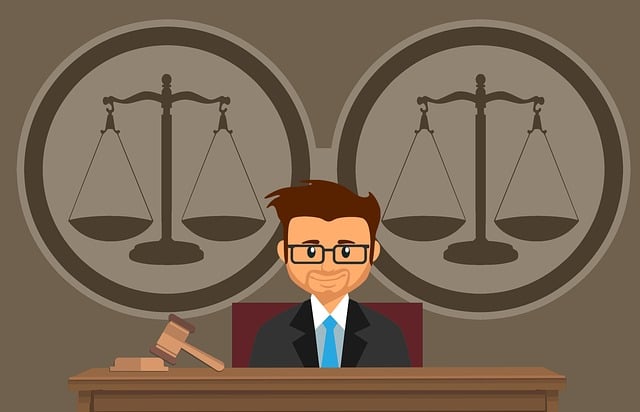Mail wire fraud, facilitated by digital platforms, has become a significant concern due to the rise of online transactions. With evolving antitrust enforcement trends in digital markets, regulators and law enforcement are prioritizing combating these deceptive schemes. This involves a complex approach combining technical tracking, legal acumen, and public education to counter advanced scamming strategies like phishing and fake investment schemes. Organizations like the FTC use advanced technologies for investigation and prosecution, achieving high conviction rates. Staying informed and implementing strong security measures, in line with antitrust enforcement trends, is crucial for individuals and organizations to protect themselves from mail wire fraud.
Mail wire fraud, a prevalent digital scam, poses significant risks in online transactions. As e-commerce flourishes, understanding this fraudulent practice is vital for both consumers and businesses. This article explores the evolving landscape of mail wire fraud, focusing on recent antitrust enforcement trends in digital markets. We delve into common tactics, legal responses, and proactive measures to safeguard individuals and industries. By unraveling these aspects, we aim to enhance awareness and empower readers with knowledge against emerging online threats.
- Understanding Mail Wire Fraud: A Digital Market Concern
- The Rise of Antitrust Enforcement in Online Spaces
- Common Strategies and Techniques Employed by Scammers
- Legal Frameworks and Regulatory Bodies Fighting Against Fraud
- Protecting Yourself: Awareness and Prevention Measures
Understanding Mail Wire Fraud: A Digital Market Concern

Mail Wire Fraud is a growing concern within digital markets, where the ease of online transactions also facilitates deceptive schemes. This type of fraud involves the use of electronic communication to trick individuals into transferring money or sensitive information under false pretenses. As antitrust enforcement trends in digital markets continue to evolve, addressing these fraudulent activities has become a priority for regulators and law enforcement agencies.
Understanding the intricacies of mail wire fraud is crucial for both general criminal defense strategies and the overall health of digital marketplaces. The investigative and enforcement process involves meticulous tracking of digital trails, analyzing communication logs, and gathering evidence across various platforms. Jury trials play a significant role in holding perpetrators accountable, as they provide a forum to present complex financial and technological evidence. From initial detection to all stages of the investigative and enforcement process, combating mail wire fraud requires a multifaceted approach that blends technical expertise with legal acumen.
The Rise of Antitrust Enforcement in Online Spaces

In recent years, the rise of online platforms and digital markets has brought about significant changes in the realm of antitrust enforcement. As these spaces become more bustling with competition, regulatory bodies are navigating complex landscapes to ensure fair practices. The evolution of antitrust laws and their application in the digital age is a testament to this shifting dynamic. Online marketplaces, with their vast reach and data-driven strategies, have attracted scrutiny from regulators worldwide, who aim to uphold competition and protect consumers.
Antitrust enforcement trends in digital markets reveal a focus on all stages of the investigative and enforcement process. High-stakes cases against tech giants have gained headlines, with investigations uncovering potential anti-competitive behaviors. These efforts are driven by the need to address monopolistic tendencies and preserve market integrity. For his clients, this shift means an increased emphasis on transparency, fair pricing, and competitive practices, ensuring a level playing field in the digital world.
Common Strategies and Techniques Employed by Scammers

Scammers employ various strategies to dupe unsuspecting individuals, often leveraging technological advancements and social engineering techniques. One common method is phishing, where they send fraudulent emails or messages disguised as legitimate communications from banks, government agencies, or reputable companies. These messages usually contain links or attachments that lead to malicious websites designed to steal personal information such as login credentials, credit card details, and Social Security numbers. Another tactic is the use of fake investment schemes, where scammers promise high-return investments in non-existent or heavily exaggerated ventures, luring victims with the prospect of quick wealth.
In the context of antitrust enforcement trends in digital markets, these fraudulent activities pose significant challenges. Scammers often operate through sophisticated online platforms, making it difficult to trace their identities. They exploit the trust and convenience offered by digital transactions, leading to substantial financial losses for victims. While general white-collar defense strategies can help mitigate such crimes, a robust legal framework and public awareness are crucial in combating these evolving tactics. Ensuring a complete dismissal of all charges is not typically the goal but rather, effective prosecution and prevention through education are key to safeguarding individuals in the digital realm from these deceptive practices.
Legal Frameworks and Regulatory Bodies Fighting Against Fraud

The fight against mail wire frauds is a collaborative effort involving robust legal frameworks and dedicated regulatory bodies. In recent years, antitrust enforcement trends in digital markets have played a pivotal role in dismantling fraudulent schemes. These efforts aim to protect consumers and maintain the integrity of online transactions by holding wrongdoers accountable under strict regulations. Legal systems worldwide have been enhancing their measures, incorporating advanced technologies to detect and prevent such frauds effectively.
Regulatory bodies, such as the Federal Trade Commission (FTC) and various national antitrust agencies, possess the authority to investigate and prosecute mail wire fraudsters. Their unprecedented track record in securing convictions demonstrates the effectiveness of these legal frameworks. Whether targeting corporate or individual clients, these organizations ensure that fraudsters face severe consequences, including substantial fines and prison sentences. By consistently updating their strategies and staying ahead of evolving fraud techniques, they send a clear message: avoiding indictment is not an option for those engaging in such illicit activities.
Protecting Yourself: Awareness and Prevention Measures

Protecting yourself from mail wire fraud involves staying informed and implementing robust prevention measures. With the rise of digital communication, fraudsters have found new ways to exploit vulnerable individuals and organizations. Understanding the latest antitrust enforcement trends in digital markets can offer insights into common scams and help you stay ahead of potential threats. By keeping up with regulatory changes and being vigilant, you can significantly reduce the risk of falling victim to these crimes.
Avoiding indictment for white-collar and economic crimes is a priority for many, especially within the philanthropic and political communities. Implementing security protocols, such as verifying communication channels and using secure payment methods, can make it much harder for fraudsters to succeed. Regularly updating your knowledge about emerging scams and sharing this information with others in your network is also crucial. Together, we can foster a more secure digital environment by promoting awareness and adopting robust prevention measures.
Mail wire fraud poses a significant challenge in the digital age, but with heightened antitrust enforcement trends in online spaces, there’s hope for stronger protections. By understanding common scamming techniques and leveraging robust legal frameworks, we can foster a safer digital landscape. Individuals must remain vigilant and adopt awareness-based prevention measures to safeguard themselves from such fraudulent activities. Together, these efforts will contribute to curbing mail wire fraud and ensuring a more secure future for online transactions.






